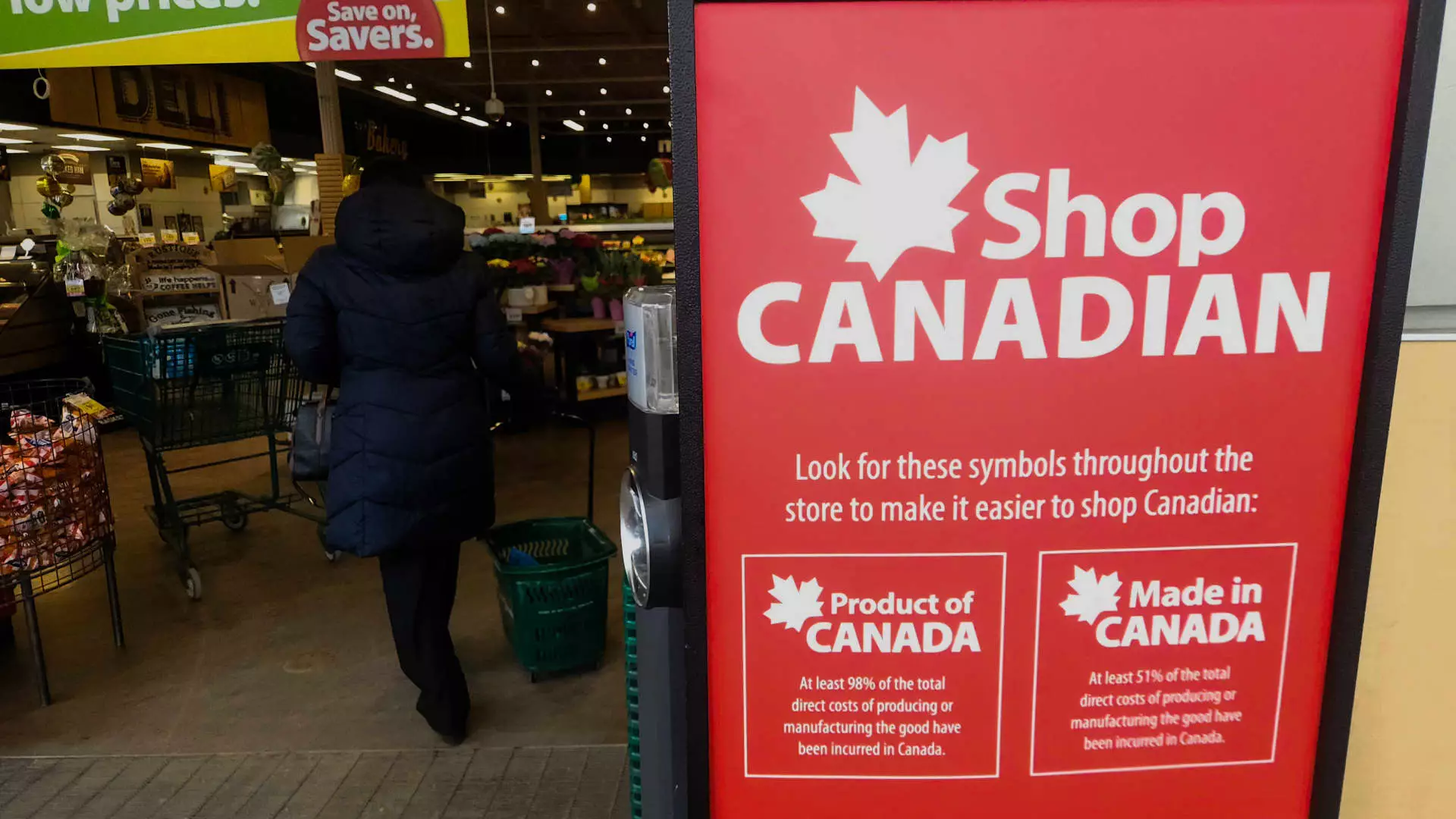The imposition of tariffs by the Trump administration has reshaped the economic landscape between the United States and Canada, and not just in abstract terms of dollars and cents. For many small to medium-sized enterprises across the northern border, these tariffs represent far more than simple trade policy—they threaten the very relationships on which their businesses are built. As President Trump asserts that tariffs will restore balance to trade and revitalize American manufacturing, those who are directly impacted are left wrestling with feelings of betrayal and mistrust toward their American trading partners.
The $762.1 billion that flowed between the two nations in 2024 isn’t just a statistic—it reflects decades of interdependence, shared resources, and joint innovation. The notion that these bonds can be casually broken with tariffs of 10% on energy and 25% on various imports casts a long shadow over the future of trade in North America. For many, this scenario is not merely an economic challenge but also a deeply personal affront. Businesses that have thrived on mutual trust are suddenly scrambling to assess how these new levies could disrupt longstanding agreements and partnerships.
Emotional Impact and Business Decisions
The emotional landscape of the trade conversations is equally critical. Corinne Pohlmann, executive vice president of advocacy at the Canadian Federation of Independent Business (CFIB), has highlighted that among her organization’s 100,000 members, nearly half are involved in trade with the U.S. The paranoia surrounding tariffs has incited many to reconsider their business strategies. Companies are weighing whether to pass on costs to consumers or absorb them, leading to a palpable sense of anxiety not only about profitability but also about the viability of cross-border relationships.
Adding to the emotional complexity is the symbolic resistance initiated by Canadian businesses in response to what they see as an assault on their national pride. From coffee roasters renaming items to the use of national symbols on product labels, the retaliation goes beyond economic calculations. It’s an exercise in asserting identity against perceived aggression—a diverse battlefront where the stakes are both financial and ideological.
The Retaliation: A National Response
The retaliatory tariffs from Canada, though a necessary response to protect its economy, reveal the depth of this conflict. For instance, the Ontario Liquor Control Board’s suspension of U.S. product purchases sends a clear message: it’s not merely about balancing trade sheets—it’s about standing up for Canadian dignity. This move is not just a loss for American companies but a strong assertion in favor of local goods during turbulent times.
The political symbol of this behavior cannot be underestimated. Tariffs may serve as hard economic power, but it’s the loss of “soft power” that former Secretary of State Antony Blinken has pointed to as a serious concern for the U.S. When friendly nations begin to doubt America’s reliability, it strikes at the heart of long-standing diplomatic relationships and regional alignments. These connections have historically benefited America’s international standing, and their erosion could leave the U.S. isolated on the global stage.
Trade Relationships Deteriorating
The damage inflicted by tariffs isn’t merely economic; it extends into the trust that entrepreneurs have for their partners across borders. Many businesses, having relied on U.S. suppliers or customers for years, are finding themselves in a precarious position. Potential loss of contracts and a fundamental shift in how they view American businesses leads many Canadian entrepreneurs to question whether returning to previous frameworks is even feasible.
As numbers of surveyed CFIB members indicate, more than half believe that the U.S. is no longer a reliable trading partner. This sentiment goes beyond just numbers; it reflects a larger narrative of disillusionment. The nation that was once seen as a steadfast ally in trade has suddenly become unpredictable, and that uncertainty bleeds into every business transaction.
Looking Ahead: A Fractured Future
Pohlmann’s remarks are hauntingly clear: even if tariffs are lifted, the damage to relationships may be insurmountable. The bond that once represented a shared economic destiny has become tainted by misunderstandings and a lack of respect. As Canadian businesses grapple with lost contracts and shifting loyalties, it raises a pressing question: how can trust be rebuilt in a climate so strained by tariffs? The answer is murky, as it requires not only reversing policies but also earning back the faith that years of collaboration have cultivated.
In this ever-evolving trade landscape, both nations must be willing to reflect on their roles and responsibilities. The path forward may not simply be a matter of adjusting tariffs; it may be about rekindling a sense of partnership that feels genuinely reciprocal and respectful. The implications of a fractured U.S.-Canada relationship will reverberate beyond borders, marking a significant turning point in North American economic history.

